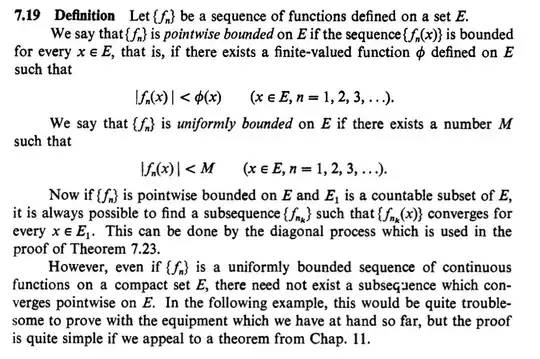Does uniform boundedness imply pointwise boundedness? I take Walter Rudin's definition shown below.

If yes, we can also find a converging subsequence for $\{f_n\}$ if it's uniformly bounded, contradicting to Rudin's statement that "there need not exist a subsequence which converges pointwise on E"
I can prove pointwise boundedness doesn't imply uniform boundedness by setting $f_n(x)=x$ and $\phi (x)=2x$ for $x\in(0,+\infty)$.